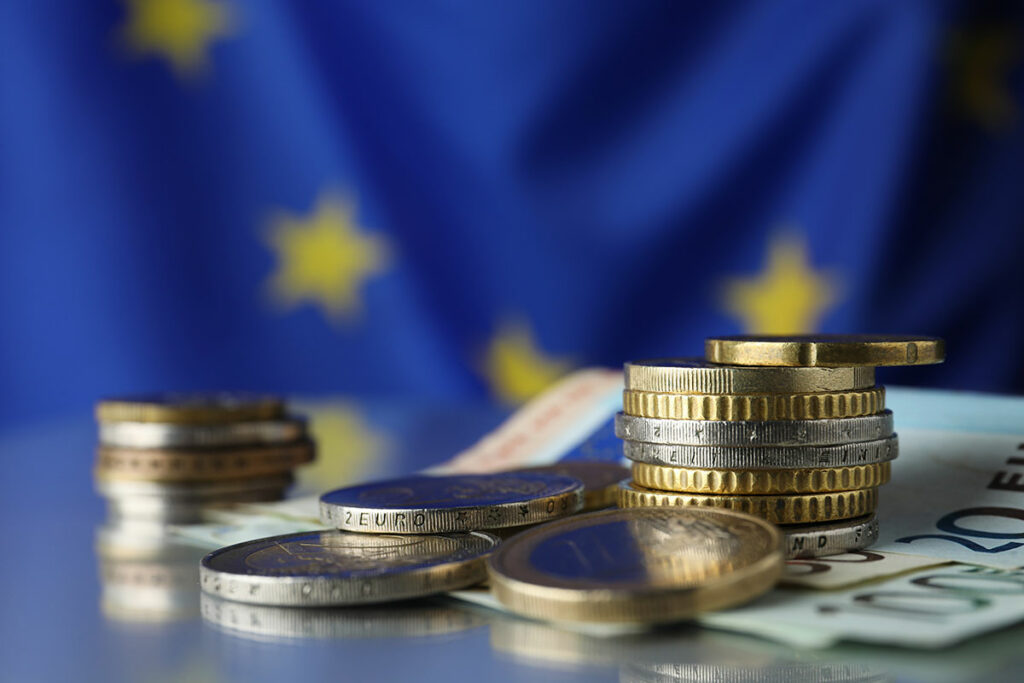During 2014-2022, €14 billion of irregular EU expenditure was reported in all policy areas but the process to recover the misspent money is too lengthy, according to a new audit report this week by the European Court of Auditors (ECA.
While the European Commission ensures that irregular expenditure is recorded accurately and promptly, the EU auditors found in the audit that getting this money back often takes too long. For jointly managed agricultural funds where member states have primary responsibility, recovery rates are generally low, with significant differences between EU countries.
It typically takes 14-23 months from the end of the funded activities until a repayment request is even issued, and a further 3-5 months before the funds are retrieved, with 1-8% of them being waived if the expected costs exceed the amounts to be recovered and when debtors are insolvent or in liquidation.
The auditors found that the Commission had sufficient justification for waiving the debts but remarked that the long delays in initiating enforcement procedures reduced the likelihood of recovering the debts.
“No effort should be spared to recover misspent EU money without delay,” said Jorg Kristijan Petrovic, the Slovenian ECA Member responsible for the audit. “The EU owes this to taxpayers, and any failure to recover money would be detrimental to EU citizens’ trust”. The effective recovery of funds has become a pressing issue with the increasing error rate (4.2 % in 2022) in the EU budget.
The recovery rates and the time it takes to recover irregular spending vary by management mode, member states and even by Directorate-General in the Commission. Around 70 % is jointly managed with member states, 20 % is directly managed by the Commission, and 10 % is indirectly managed through international organisations or third countries.
As regards direct and indirect management, the Commission is responsible for identifying and recording irregular expenditure, and then recovering the funds. Under shared management, the Commission delegates responsibility for recording and recovering irregular expenditure to member states, but retains ultimate responsibility for assurance.
Why does it take so long time before a payment request is issued? “The long delays occur mainly due to the time taken by hired audit firms to carry out the audits (up to 13 months), in addition to the time taken by the Commission to discuss the findings of the audit reports with the audited organisation (up to 9 months),” the audit team told The Brussels Times.
After the payment request has been issued, it takes an additional 3 – 5 months to retrieve the money. “It is therefore important to shorten the period of requesting the repayment, because the longer it takes the Commission to ask the beneficiary to repay the funds received, the more likely it is that they cannot be traced or are unable to be repaid,” according to the auditors.
In indirect management, the recovery process is longer, because the Commission carries out a further full “adversarial” procedure with the implementing organisations, especially in the area of external actions managed by the Department for International Partnerships (INTPA) and the Directorate-General for Neighbourhood and Enlargement Negotiations (NEAR).
In some cases, the contracts foresee that final payments are only made after an audit is carried out, but more often the audit is made randomly after the project has been completed and all the funding already has been disbursed.
How much of the requested has not been recovered and is lost? “When looking at waivers by four DGs, we report that €10 million was waived in 2021 and €8 million in 2020. The Commission reported that it had to write off €40 million of debts concerning all types of expenditure in 2022. We do not mention the overall amount waived in the previous long-term budget for 2014-2020.”
There is a unit in DG Budget that is responsible for following up recovery orders that the Commission DGs issues. Did ECA consider outsourcing the recovery process to debt collection companies? "The Commission is implementing several measures to improve its debt collection process,” ECA member Petrovic replied. “We would like to see their impact before recommending the use of debt collectors.”
He was referring to a new initiative proposed by DG Budget after the auditors had completed its field work. DG BUDG noted that debts totalling €450 million were overdue in October 2023. In February 2024, the Commission adopted an enhanced corporate strategy for the management of the Commission’s debtors.
The new strategy foresees new measures for direct and indirect management, such as recovery performance standards to quantify the requirements of the Financial Regulation. In its reply to ECA, the Commission accepted the audit recommendations and write that the audit will help to improve the systems to recover irregular expenditure.
While the recovery system overall works, according to the Commission, a spokesperson told The Brussels Times that the Commission shares ECA’s views that there is still room to recover irregular expenditure more diligently and effectively. As regards direct and indirect management, the Commission is working towards the acceleration of the different steps in the recovery process.
In particular for expenditure under external action, where the time to issue a recovery order is significantly longer than for funds under direct management, the Commission will review how it plans its audit work in order to reduce the time to issue a recovery order.
M. Apelblat
The Brussels Times

